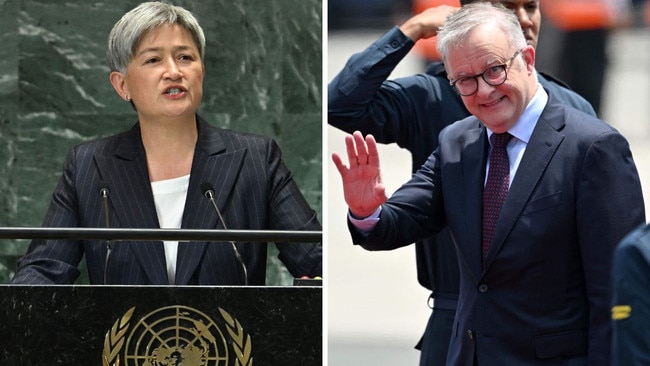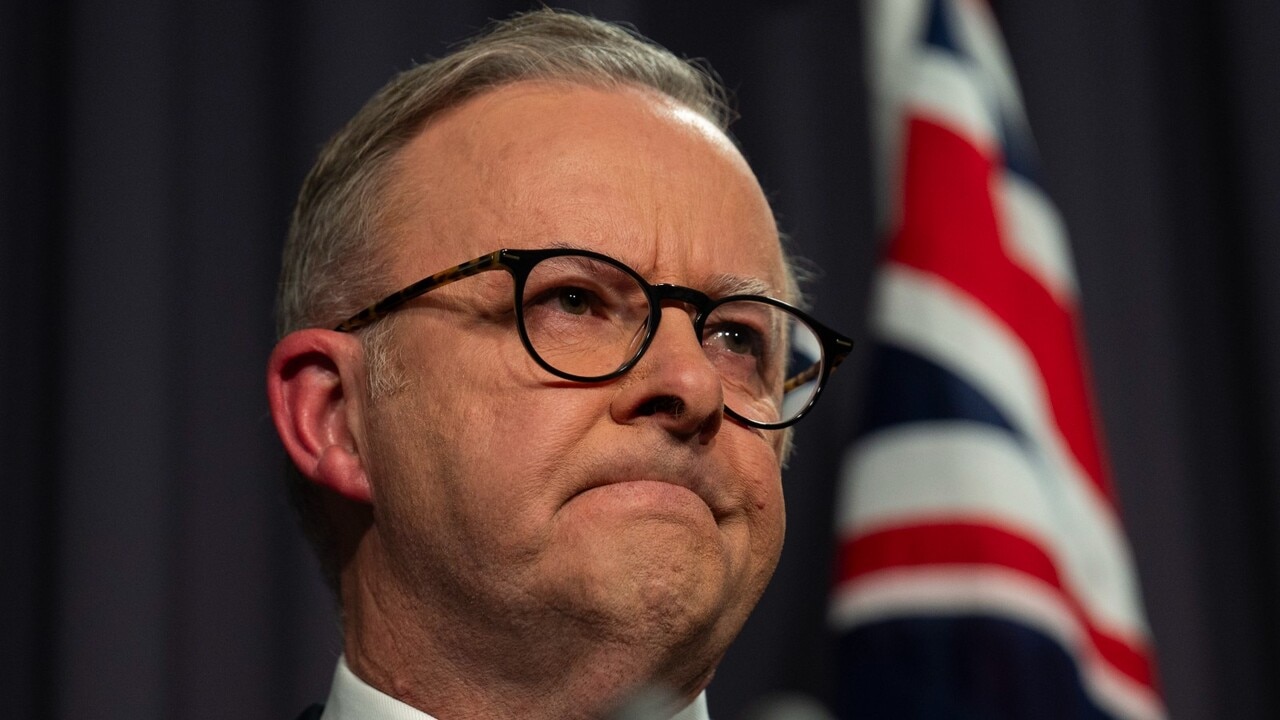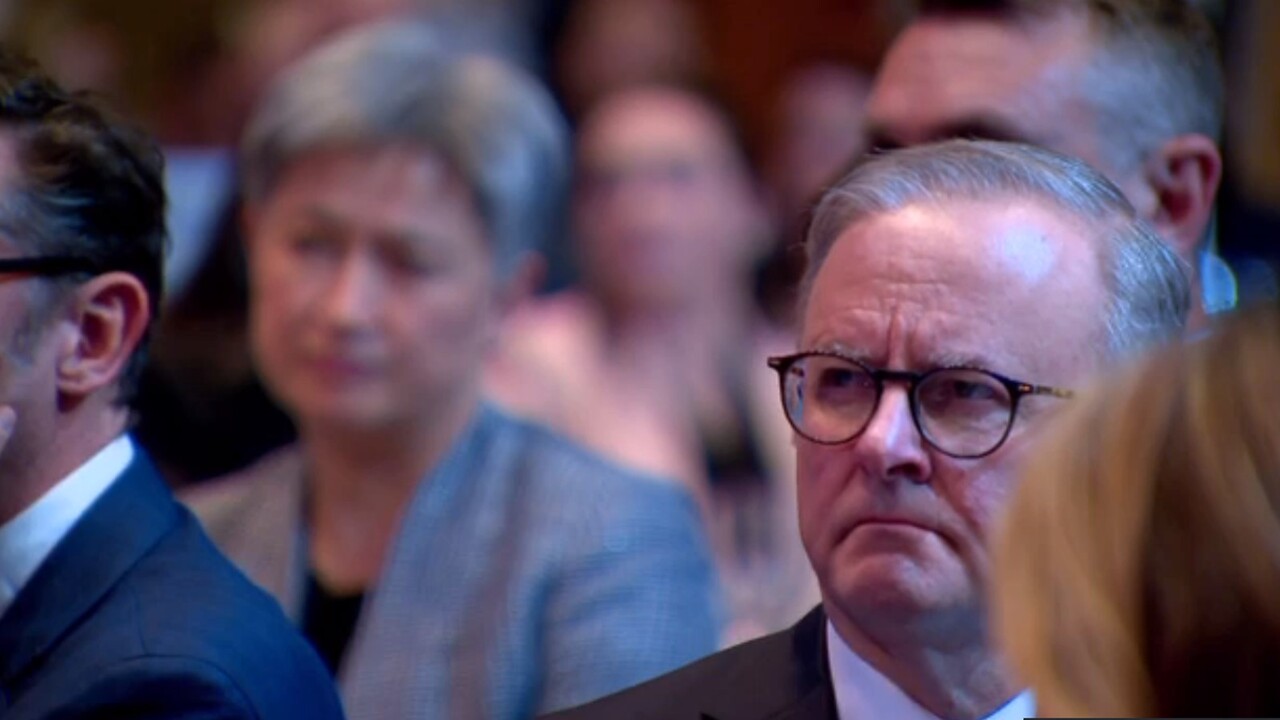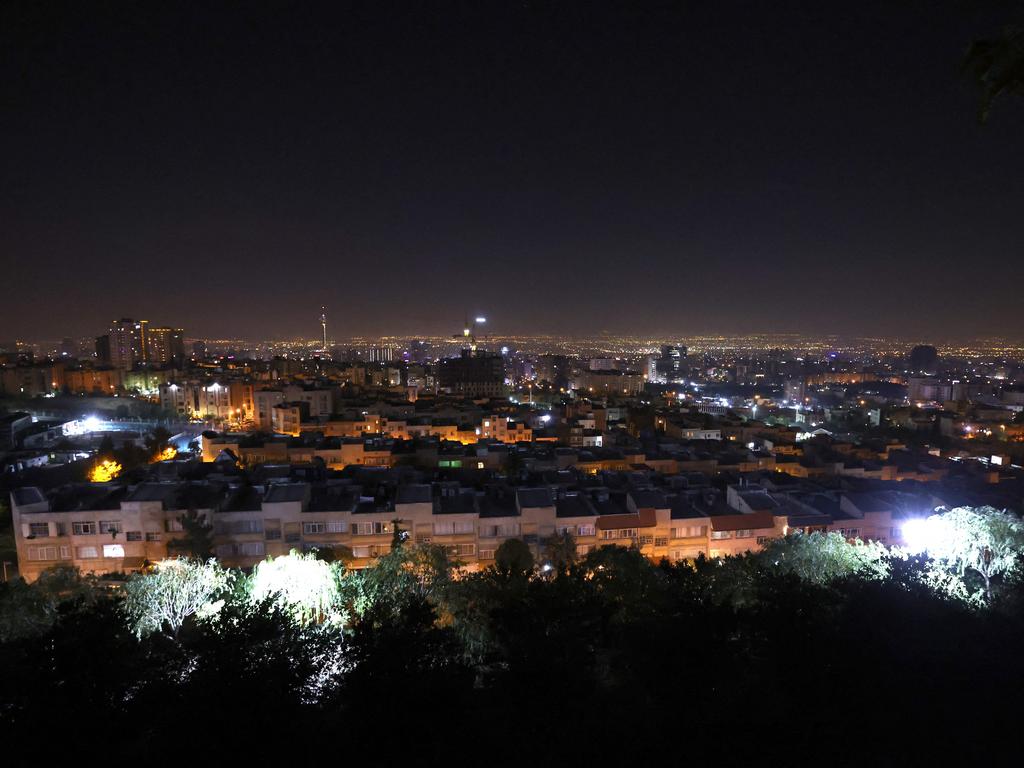Anthony Albanese toughens criticism of Israel in UN votes, divide with US on Middle East grows
Anthony Albanese has hardened Australia’s criticism of Israel in key UN votes, deepening its rift with the US on the Middle East as incoming president Donald Trump prepares to strengthen American support for the Jewish state.

Anthony Albanese has hardened Australia’s criticism of Israel in key UN votes, deepening its rift with the US on the Middle East as incoming president Donald Trump prepares to strengthen American support for the Jewish state.
Australia’s representative at the UN in New York overturned the nation’s past positions to support draft resolutions recognising the “permanent sovereignty” of Palestinians to the occupied territories’ natural resources, and demanding compensation from Israel for a wartime oil spill affecting Lebanon 18 years ago.
Australia had abstained or voted against the first resolution since 2003, and opposed the second since 2006.
The move, during UN committee ballots on Thursday (AEDT), follows the Albanese government’s decision to break with the US and abandon longstanding bipartisan support for Israel by declaring Australia could recognise a Palestinian state ahead of a negotiated two-state solution.
It comes amid high anxiety inside the government over its ability to forge a good working relationship with Mr Trump, who has installed pro-Israel hawks in key posts and is threatening to impose across-the-board tariffs and wind back action on climate change. Members of the incoming Trump administration have also warned that Kevin Rudd’s days as Australia’s ambassador to the US could be numbered, following his past negative comments about the president-elect.
Jewish groups declared the voting shift made no sense and would deepen the nation’s divide with Washington on Israel.

US diplomat Nicholas Koval said the motions were “unfairly critical” of the Jewish state and would undermine hopes for an end to the conflict between Israelis and Palestinians.
“One-sided resolutions will not help advance peace,” Mr Koval said. “Not when they ignore the facts on the ground. One-sided resolutions are purely rhetorical documents that seek to divide us at a time when we should be coming together.
“If member states are serious about promoting the cause of peace between Israelis and Palestinians, they should seek to end the persistent bias within the United Nations against Israel.”
The government failed to publish its official reasons for the shift from past positions, but a spokeswoman for Foreign Minister Penny Wong said the nation voted with the overwhelming majority of UN member states.
She said the government did not agree with “everything” in the resolution on Palestinian sovereignty over land, water and energy resources in the occupied territories. But she said the vote reflected “international concern about Israeli actions that impede access to natural resources, and ongoing settlement activity, land dispossession, demolitions and settler violence against Palestinians”.
“We have been clear that such acts undermine stability and prospects for a two-state solution,” Senator Wong’s spokeswoman said. “This resolution importantly recalls UN Security Council resolutions that reaffirm the importance of a two-state solution that has had bipartisan support.”
Australia had reservations over the text of the Lebanese oil slick resolution, but voted for it to express concern over the loss of life in the current conflict between Israel and Hezbollah.
“Australia is disappointed the resolution makes no reference to the terrible and destabilising actions of Hezbollah,” Senator Wong’s spokeswoman said.
“We reiterate calls for all parties to the conflict in Lebanon to show restraint, de-escalation and comply with their obligations under international law.”
Opposition foreign affairs spokesman Simon Birmingham said Labor’s increasing opposition to Israel in the UN came despite its pre-election pledge that there were no policy differences between the major parties on the Jewish state. “It’s simply broken promise after broken promise as the Albanese government has dropped or changed longstanding Australian positions,” Senator Birmingham said.

The draft resolution – on “Permanent sovereignty of the Palestinian people in the Occupied Palestinian Territory, including East Jerusalem, and of the Arab population in the occupied Syrian Golan over their natural resources, including land, water and energy resources” – was approved by 159-7, with 11 abstentions. The oil slick draft resolution – concerning Israel’s bombing of Jiyeh Power Station during the 2006 Israel-Lebanon conflict, which released more than 30,000 tonnes of fuel oil into the eastern Mediterranean Sea, which covered 170km of Lebanese coastline – was carried by 161-7 with nine abstentions.
Israel’s representative said the country was being blamed for an incident in a war sparked by Lebanese terrorists, and the resolution was a “gross misrepresentation of the facts”. Both resolutions are set to proceed to UN General Assembly votes next month.
Israeli Prime Minister Benjamin Netanyahu revealed this week he had spoken to Mr Trump three times since his election win, declaring they saw “eye to eye regarding the Iranian threat and all of its components”.
Incoming secretary of state Marco Rubio has previously rejected calls for a ceasefire in Gaza. “On the contrary … I want them to destroy every element of Hamas they can get their hands on,” Mr Rubio said a month into the war. “These people are vicious animals who did horrifying crimes.”
Mr Trump’s pick for US ambassador to Israel, Mike Huckabee, is a hardline supporter of the Jewish state and has long rejected calls for a Palestinian state.
Executive Council of Australian Jewry co-chief executive Alex Ryvchin said the change in Australia’s votes on the resolutions, which arose annually in the UN, exposed the widening gulf between the US and Australian positions on Israel. “This shift in voting won’t change much in Israel where the nation is concerned with Hamas and Hezbollah and hostages rather than the judgments passed by our government,” Mr Ryvchin said. “But it will be noticed in Washington and certainly by Australians with a connection to the conflict, which may well be the point.”
Australia/Israel & Jewish Affairs Council executive director Colin Rubenstein said Australia’s support for the motions was “bizarre”. “Such resolutions are designed to be a permanent irritant between the parties and prevent them from moving towards a negotiated peaceful future,” he said.
General Delegation of Palestine to Australia head Izzat Abdulhadi, welcomed the government’s change of heart on Palestinian sovereignty over natural resources. “(The new position) aligns with international law and the advisory opinion of the International Court of Justice, which has been recently published,” he said.
Australia Palestine Advocacy Network president Nasser Mashni said: “This vote is a long-overdue recognition of Palestinians’ inalienable rights and a clear stand against Israel’s illegal occupation and exploitation of Palestinian people and natural resources.”







To join the conversation, please log in. Don't have an account? Register
Join the conversation, you are commenting as Logout